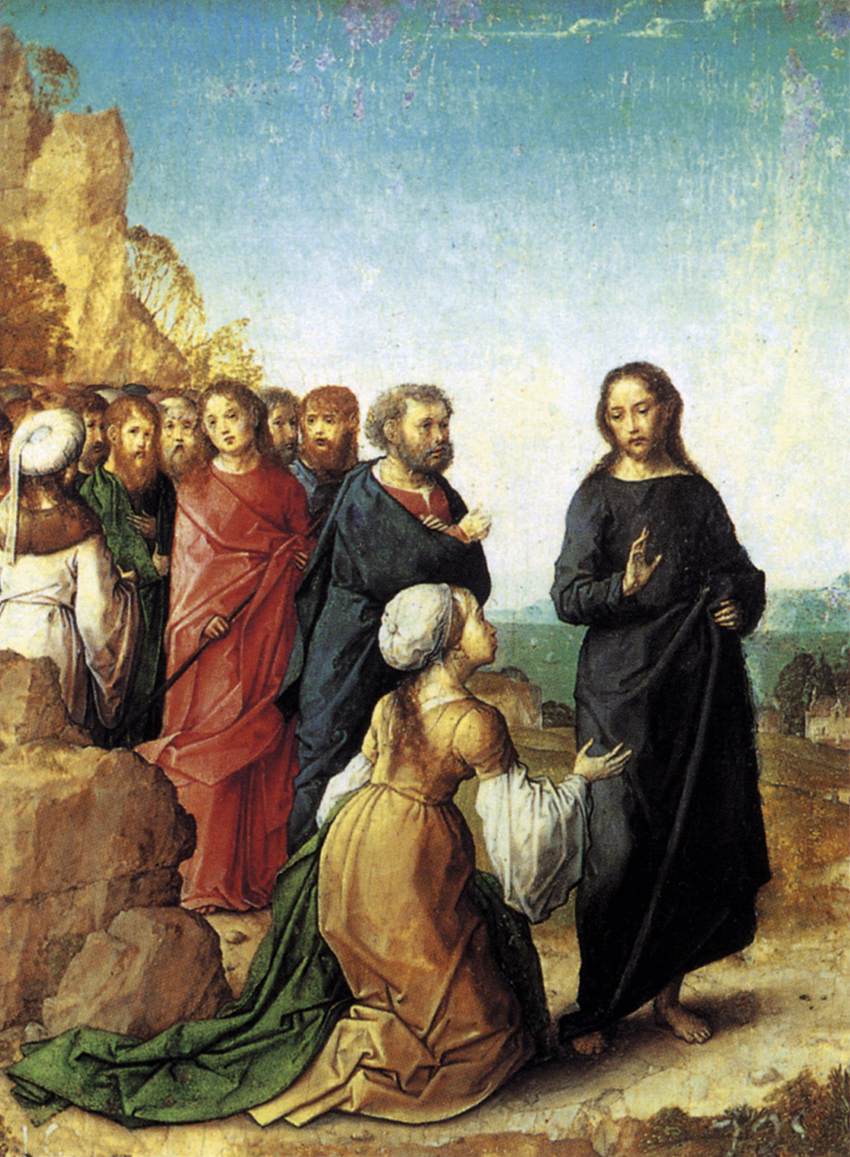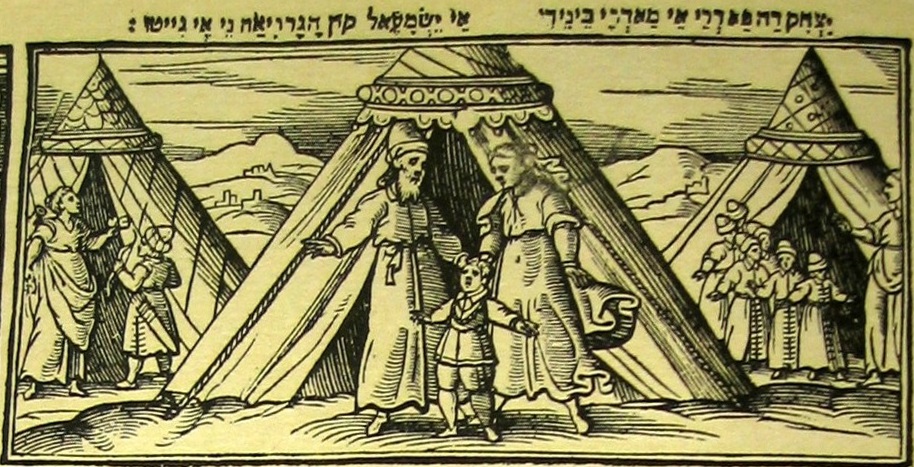11 March 2016
Noadiah: Listen
"Remember [...], O my God, [...] also the prophetess Noadiah and the rest of the prophets who wanted to make me afraid." (Nehemiah 6:14)
Listen, listen,
hear my words.
Drink them up,
let them grip you within,
until they echo
round and round
inside your mind,
inside your heart.
Listen, listen -
it's only advice.
It's for your own good.
It's for everyone's best.
Listen, listen -
I'm only being honest.
This is God,
challenging you.
Listen, listen,
listen to me.
Listen, listen -
how do you know
that what you say is from God
and what I say is not?
Listen, listen -
you only reject
what you don't like,
what's uncomfortable.
Listen, listen,
listen to me.
Listen, listen,
drink my poison up.
Listen, listen,
let me fill you with doubt.
Listen, listen,
let me confuse you.
Listen, listen,
as I make you small,
as I bend you and break you
and make you fall.
Listen, listen,
listen to me.
Listen, listen,
ssssssssssssss...
________________________________________________________
[9. March 2016]
Noadiah was a false prophet who tried to discourage Nehemiah from rebuilding the wall around Jerusalem after the return from the Exile. I tried here to touch on the issue of false prophecy. Of course Noadiah would never admit to the last stanza, but that is what often happens (intentionally or not) in such a situation.
How do you recognise whether a message is truly from God or not? Are all the uncomfortable messages from God? No - even though God often does tell us challenging things. We need wisdom and discernment to differentiate between a real challenge from God (which it is important to respond to the right way) and discouragement that comes from people. And this is very hard! I believe the best way to be safe from this kind of attack is to know the Bible, to know what God is like, to have a general idea what His will is, so that we can measure the more specific messages to what we know of God from His word. Also, the question is what motives the "prophet" / messenger has. Is this person serving him/herself, or truly serving God? Jesus taught us that we can recognise a false prophet by his/her "fruits" (works / lifestyle). Do they live in a way that would please the God of love?
As for the snake: I discovered a few lines into this poem that "listen, listen" has a sibilance (an "s" sound) - and that the snake is a lovely metaphor for someone who lies, manipulates, and fills you with poison. That's why this ends with a hiss. ;)
Picture by Helena Forde.
09 March 2016
Esther: Just A Girl
Esther 4
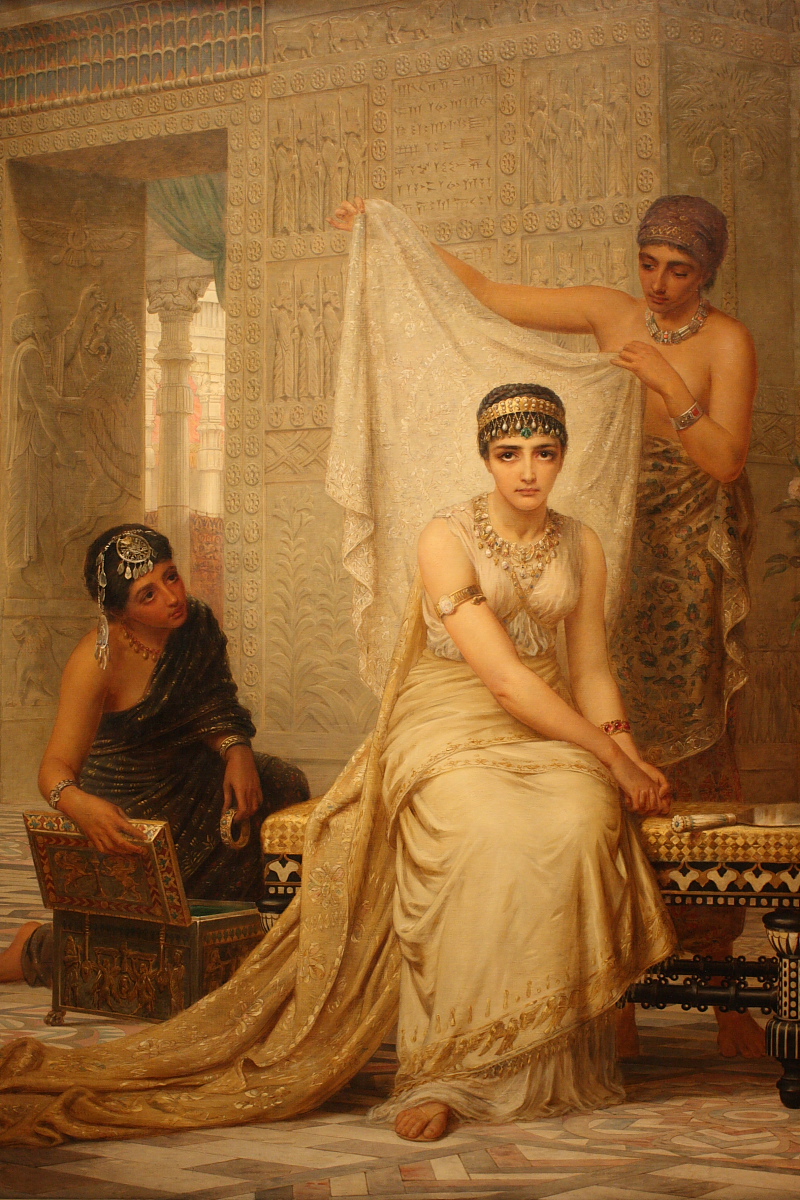 "Who knows? Perhaps you have come to royal dignity for just such a time as this." (Esther 4:14b)
"Who knows? Perhaps you have come to royal dignity for just such a time as this." (Esther 4:14b)
Why me, God?
I'm just a girl,
longing to belong -
why let me be uprooted,
torn from those I love?
Why take me to this foreign place
where I know no one?
Why me, God?
I'm just a girl,
longing to be loved -
why place me in the power
of such a cruel man?
Why take away my freedom,
imprisoned in his hand?
Why me, God?
I'm just a girl,
longing for peace -
why this burden on my shoulders?
Why this responsibility?
Should I pay with my own life
to buy my people free?
It's me, God -
I am a queen
placed here by you
for just this purpose,
for such a time as this.
My life makes sense
in your perfect plan -
so give me strength to do
what you have called me to.
______________________________________________________________
[9. March 2016]
We can look at Esther's story as a "rags-to-riches" story about a girl rising from orphaned nobody to queen of a huge empire (comprising 127 provinces) - or we can read it as the story of a girl who was forcefully taken from her family without any say in the matter, to marry a man who we found out in the first chapter has a rather volatile temper. Esther hardly speaks a word for much of the first part of the book. She has no say in what is happening to her. So despite her rise to queenship, I believe Esther is actually in a situation of suffering. She is practically imprisoned, unable to return to her family (though she is still able to communicate with Mordecai) and (on pain of death) forbidden from approaching her husband on her own initiative, bound into the rules and restrictions of palace life. So I can very well imagine her asking: "Why me?"
One of my favourite parts of the book of Esther is chapter 4, where Mordecai moves Esther to stand up for her people. The Jews are in danger: a day has been set on which they are all to be exterminated. Mordecai wants Esther to use her position with the king to save the Jews. And this is the point where all that has gone before, Esther's separation from her family and her marriage to the king, is given some sense: "Who knows? Perhaps you have come to royal dignity for just such a time as this." (Esther 4:14)
Esther is a very interesting book in that it nowhere mentions God directly. However, God is hinted at in statements like this one. He is active in the background, behind all the occurrences and the actions of individuals, behind some of the things we don't understand. Mordecai explains what Esther has been going through: it has all had a purpose, it has led to this point in which Esther has a vital role to play for her people. She has become queen for a reason, she has been given this responsibility for a reason, and so she should not be afraid to act.
I suppose all this wasn't clear as it was occurring. Esther did not see God's purpose when she was taken away from her adoptive parents. She did not see God's purpose when she ended up married to the Persian king. But sometimes we come into a situation where God's leading hand becomes visible, where things become clear. Often we only see clearly in hindsight.
It's not always wise to tell someone, "Oh, your suffering has a purpose and God has a plan." They might not understand it at the moment. We need wisdom and discernment when it is right to help someone who is suffering to view their suffering in the larger context of God's guidance. But I do believe it can be comforting and helpful to recognise: what has happened to me has a purpose. And from experience I can say that being entrusted with a task is one of the greatest comforts one can be given.
Picture by Edwin Long.
 "Who knows? Perhaps you have come to royal dignity for just such a time as this." (Esther 4:14b)
"Who knows? Perhaps you have come to royal dignity for just such a time as this." (Esther 4:14b)Why me, God?
I'm just a girl,
longing to belong -
why let me be uprooted,
torn from those I love?
Why take me to this foreign place
where I know no one?
Why me, God?
I'm just a girl,
longing to be loved -
why place me in the power
of such a cruel man?
Why take away my freedom,
imprisoned in his hand?
Why me, God?
I'm just a girl,
longing for peace -
why this burden on my shoulders?
Why this responsibility?
Should I pay with my own life
to buy my people free?
It's me, God -
I am a queen
placed here by you
for just this purpose,
for such a time as this.
My life makes sense
in your perfect plan -
so give me strength to do
what you have called me to.
______________________________________________________________
[9. March 2016]
We can look at Esther's story as a "rags-to-riches" story about a girl rising from orphaned nobody to queen of a huge empire (comprising 127 provinces) - or we can read it as the story of a girl who was forcefully taken from her family without any say in the matter, to marry a man who we found out in the first chapter has a rather volatile temper. Esther hardly speaks a word for much of the first part of the book. She has no say in what is happening to her. So despite her rise to queenship, I believe Esther is actually in a situation of suffering. She is practically imprisoned, unable to return to her family (though she is still able to communicate with Mordecai) and (on pain of death) forbidden from approaching her husband on her own initiative, bound into the rules and restrictions of palace life. So I can very well imagine her asking: "Why me?"
One of my favourite parts of the book of Esther is chapter 4, where Mordecai moves Esther to stand up for her people. The Jews are in danger: a day has been set on which they are all to be exterminated. Mordecai wants Esther to use her position with the king to save the Jews. And this is the point where all that has gone before, Esther's separation from her family and her marriage to the king, is given some sense: "Who knows? Perhaps you have come to royal dignity for just such a time as this." (Esther 4:14)
Esther is a very interesting book in that it nowhere mentions God directly. However, God is hinted at in statements like this one. He is active in the background, behind all the occurrences and the actions of individuals, behind some of the things we don't understand. Mordecai explains what Esther has been going through: it has all had a purpose, it has led to this point in which Esther has a vital role to play for her people. She has become queen for a reason, she has been given this responsibility for a reason, and so she should not be afraid to act.
I suppose all this wasn't clear as it was occurring. Esther did not see God's purpose when she was taken away from her adoptive parents. She did not see God's purpose when she ended up married to the Persian king. But sometimes we come into a situation where God's leading hand becomes visible, where things become clear. Often we only see clearly in hindsight.
It's not always wise to tell someone, "Oh, your suffering has a purpose and God has a plan." They might not understand it at the moment. We need wisdom and discernment when it is right to help someone who is suffering to view their suffering in the larger context of God's guidance. But I do believe it can be comforting and helpful to recognise: what has happened to me has a purpose. And from experience I can say that being entrusted with a task is one of the greatest comforts one can be given.
Picture by Edwin Long.
26 February 2016
Anna: An Old Woman
Luke 2:36-38
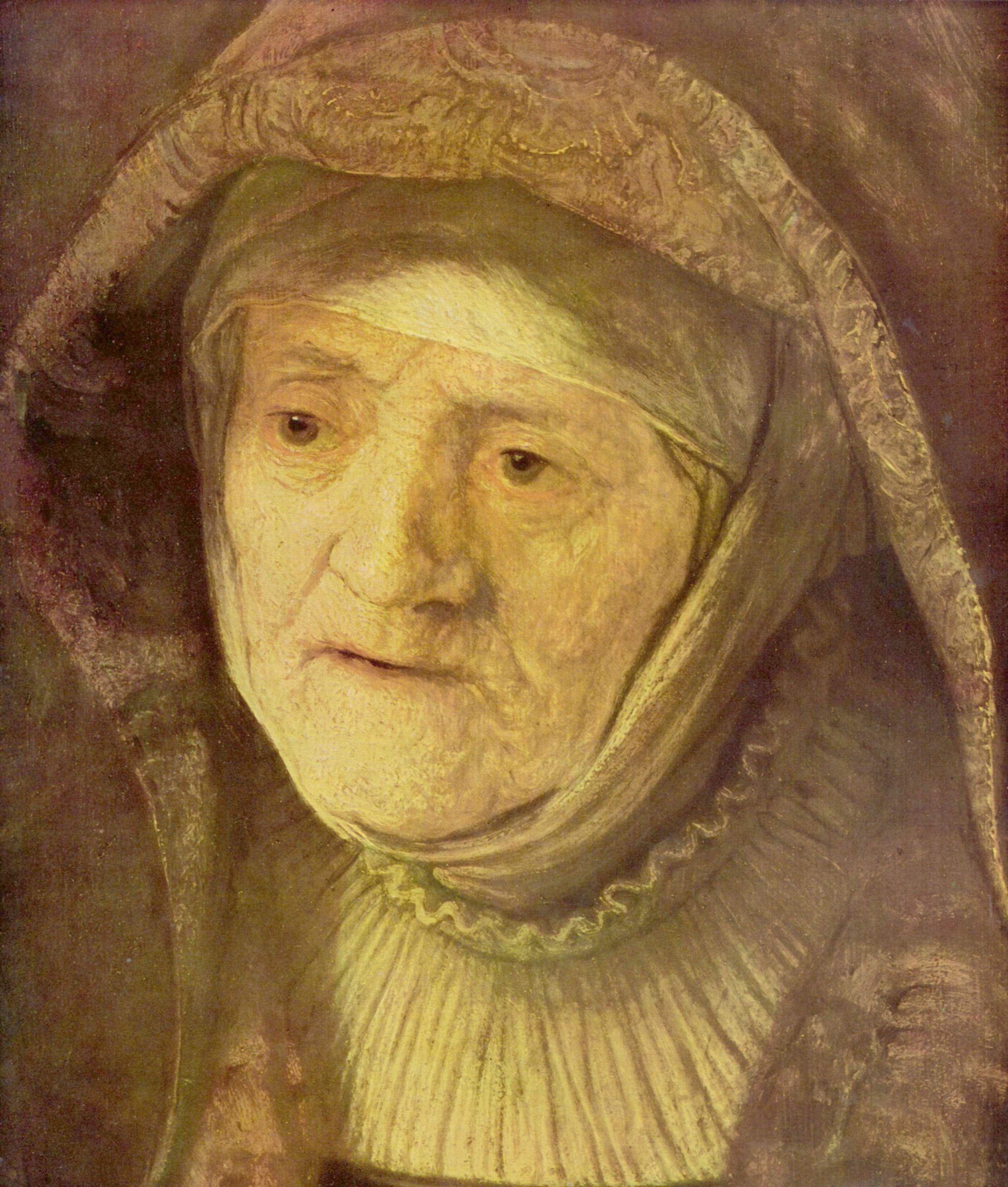
Lord,
I am an old woman.
My body hurts and aches,
my teeth have all but disappeared,
and wrinkles line my face.
Let this not be a hindrance
as I lift up your praise.
Lord,
I am an old woman.
There is not much I need.
But one thing I must ask of you,
o Father, hear my plea:
Send us the promised Saviour
to set your people free.
Lord,
I am an old woman.
I've known you many years.
I've known you in both joy and pain,
in laughter and in tears,
and so I know your faithfulness
and love will never cease.
Lord,
I am an old woman.
I have seen many things,
but I'd never have imagined
THIS.
You are too wonderful for words,
for you have heard my prayer
and in my arms the Saviour lies:
a poor woman's child,
helpless and small,
beautiful -
not what I'd have thought -
no: BETTER.
People!
I am an old woman,
but hear the words I have to say:
the Saviour has come here today,
meek and mild,
only a child,
the power of God
in weakness revealed.
Thanks be to God.
_________________________________________________________
[January 2012]
Anna sees Jesus when Joseph and Mary bring him to be presented at the temple.
Isn't it sad how old age, and old people, are nowadays being sort of relegated to the edge, as if they don't exist? If you look at magazines, you see no old people. I find old people really beautiful. You know, the really wrinkled faces and the only-two-really-black-teeth smile? I love that. It's much more beautiful than all these painted celebrities caked with make-up.
Anyway, old people still have a LOT to say. And two old people, Simeon and Anna, were among the first to recognise Jesus as Lord and pass it on. I really admire their joy. I recently read Luke 2 and I'm really setting these two old people as my examples now. I keep praying that I'll have joy like Anna.

Lord,
I am an old woman.
My body hurts and aches,
my teeth have all but disappeared,
and wrinkles line my face.
Let this not be a hindrance
as I lift up your praise.
Lord,
I am an old woman.
There is not much I need.
But one thing I must ask of you,
o Father, hear my plea:
Send us the promised Saviour
to set your people free.
Lord,
I am an old woman.
I've known you many years.
I've known you in both joy and pain,
in laughter and in tears,
and so I know your faithfulness
and love will never cease.
Lord,
I am an old woman.
I have seen many things,
but I'd never have imagined
THIS.
You are too wonderful for words,
for you have heard my prayer
and in my arms the Saviour lies:
a poor woman's child,
helpless and small,
beautiful -
not what I'd have thought -
no: BETTER.
People!
I am an old woman,
but hear the words I have to say:
the Saviour has come here today,
meek and mild,
only a child,
the power of God
in weakness revealed.
Thanks be to God.
_________________________________________________________
[January 2012]
Anna sees Jesus when Joseph and Mary bring him to be presented at the temple.
Isn't it sad how old age, and old people, are nowadays being sort of relegated to the edge, as if they don't exist? If you look at magazines, you see no old people. I find old people really beautiful. You know, the really wrinkled faces and the only-two-really-black-teeth smile? I love that. It's much more beautiful than all these painted celebrities caked with make-up.
Anyway, old people still have a LOT to say. And two old people, Simeon and Anna, were among the first to recognise Jesus as Lord and pass it on. I really admire their joy. I recently read Luke 2 and I'm really setting these two old people as my examples now. I keep praying that I'll have joy like Anna.
17 February 2016
Syrophoenician Woman: I Won't Take No
Matthew 15:21-28
O Lord, have mercy!
Hear me, and help!
Don't walk away -
please listen to me.
O Son of David,
I know who you are:
I know of your power;
I believe in your love.
O Lord, have mercy!
Why this repulse?
You turn me away
and dash my last hope.
Your calling's elsewhere -
my need not your priority.
In the face of such coldness,
can I believe you are love?
O Lord, have mercy!
Why these harsh words?
Though I cannot deny
I have no claim on you,
no right to your help.
And yet, o Lord,
I will desperately believe,
believe despite all that you are love.
Don't go
before you bless me.
Don't go
without dropping
a few crumbs for me,
at my undeserving feet.
I may not deserve you
but still I refuse
to stop knocking on your door,
demanding your love.
O Lord, have mercy!
My faith won't let you go.
I won't take a no
but cling to your grace
and count on your love.
________________________________________________________
[13. February 2013]
With references to Jacob's wrestling with God and the parable of the asking friend in Lk 11.
Last Sunday I heard a sermon on this text; a lot of this is based on what I learnt from that sermon.
Why does Jesus turn the woman away? The pastor pointed out that Jesus had a specific calling to help the people of Israel first. Mission to the gentiles started afterwards. His priority was His calling. But here's what this woman did:
All is grace!
Picture by Juan de Flandes.
O Lord, have mercy!
Hear me, and help!
Don't walk away -
please listen to me.
O Son of David,
I know who you are:
I know of your power;
I believe in your love.
O Lord, have mercy!
Why this repulse?
You turn me away
and dash my last hope.
Your calling's elsewhere -
my need not your priority.
In the face of such coldness,
can I believe you are love?
O Lord, have mercy!
Why these harsh words?
Though I cannot deny
I have no claim on you,
no right to your help.
And yet, o Lord,
I will desperately believe,
believe despite all that you are love.
Don't go
before you bless me.
Don't go
without dropping
a few crumbs for me,
at my undeserving feet.
I may not deserve you
but still I refuse
to stop knocking on your door,
demanding your love.
O Lord, have mercy!
My faith won't let you go.
I won't take a no
but cling to your grace
and count on your love.
________________________________________________________
[13. February 2013]
With references to Jacob's wrestling with God and the parable of the asking friend in Lk 11.
Last Sunday I heard a sermon on this text; a lot of this is based on what I learnt from that sermon.
Why does Jesus turn the woman away? The pastor pointed out that Jesus had a specific calling to help the people of Israel first. Mission to the gentiles started afterwards. His priority was His calling. But here's what this woman did:
- She recognised Jesus as the Messiah: she called Him the Son of David. She believed in Him.
- She did not fight against his (absolutely not flattering, even
unfriendly) remark where He compared the gentiles to dogs. Instead she
acknowledged that she did not have a claim on His help. And I think this
is important to realise: that we don't have a "right" to have our prayers answered. We do
not actually deserve Jesus at all. So we can't demand anything from Him
in that way; He doesn't "have" to give us anything.
- But this woman refuses to give up. She has strong faith: she believes that Jesus will help, even though He rejects her! She refuses to take no for an answer. And such persevering petitions God answers. Because they are an appeal not for something we have a "right" to receive, but to His grace. Because God WANTS us to trust in His grace and see that it is not because of what we are or are not, or what we have done, but only because of His Love that He accepts us and answers our prayers.
All is grace!
Picture by Juan de Flandes.
13 February 2016
Keturah: Ghost
Genesis 25:1-6
She never left;
she is still here,
filling the spaces
between you and me.
She never left;
she reappears
every time that I fail,
every time that we fight,
filling the gaps
as they widen between us -
haunting me.
She never left;
she is still here.
I hear her voice,
a whisper in my ear
that what you want is her,
what I can never be.
I see her eyes,
following me
reproachfully,
accusing me
of stealing your love.
I feel her presence
lying between us,
cold and unyielding,
clinging to you
and pushing me away -
haunting me.
And yet I know there is no ghost -
only my fear, haunting me.
I am afraid of not reaching her standard,
afraid that you might love me less,
that when you see me you think of her
and wish you could have her instead.
I want to be free.
Set me free from insecurity
so I can love you fearlessly,
and be who I am
with no more ghosts
haunting me.
________________________________________________________
[9. / 12. February 2016]
Keturah was Abraham's other wife... and from the text it kind of looks like she became his wife after Sarah died (which means he must have been crazy old by then) - I just assumed that here. This is mainly about dealing with "the Ex" or the tendency to compare oneself... We don't read anything about Keturah in the Bible other than the children she had, so we don't know how she felt about being the new wife of a widower - but here I looked a bit into what it might be like to feel insecure about the previous wife, to the extent of actually feeling her present.
One problem with the feeling of being "haunted" by the previous wife / the ex / etc is that - I believe - in many cases (especially when we're talking about dead people) it's based on the assumption that this ex is against the new match. Which is not really fair towards her: why assume that she is cruel and unkind and jealous?
Anyway I decided to start out with the "ghost" (the other woman being a threat to the relationship, being "against it") and then move on to the realisation of what is actually going on inside, namely the fear and insecurity that turns the other woman into a threat. It's not the other woman interfering - it all comes from inside Keturah herself. What needs to be "exorcised" is the fear.
(Probably the idea to write about ghosts is the result of reading Northanger Abbey and looking up some gothic horror...)
Picture is from the Venice Haggadah... Abraham and his 3 women - Keturah is the one with the many sons, on the far right.
23 January 2016
Woman with Issue of Blood: Untouchable
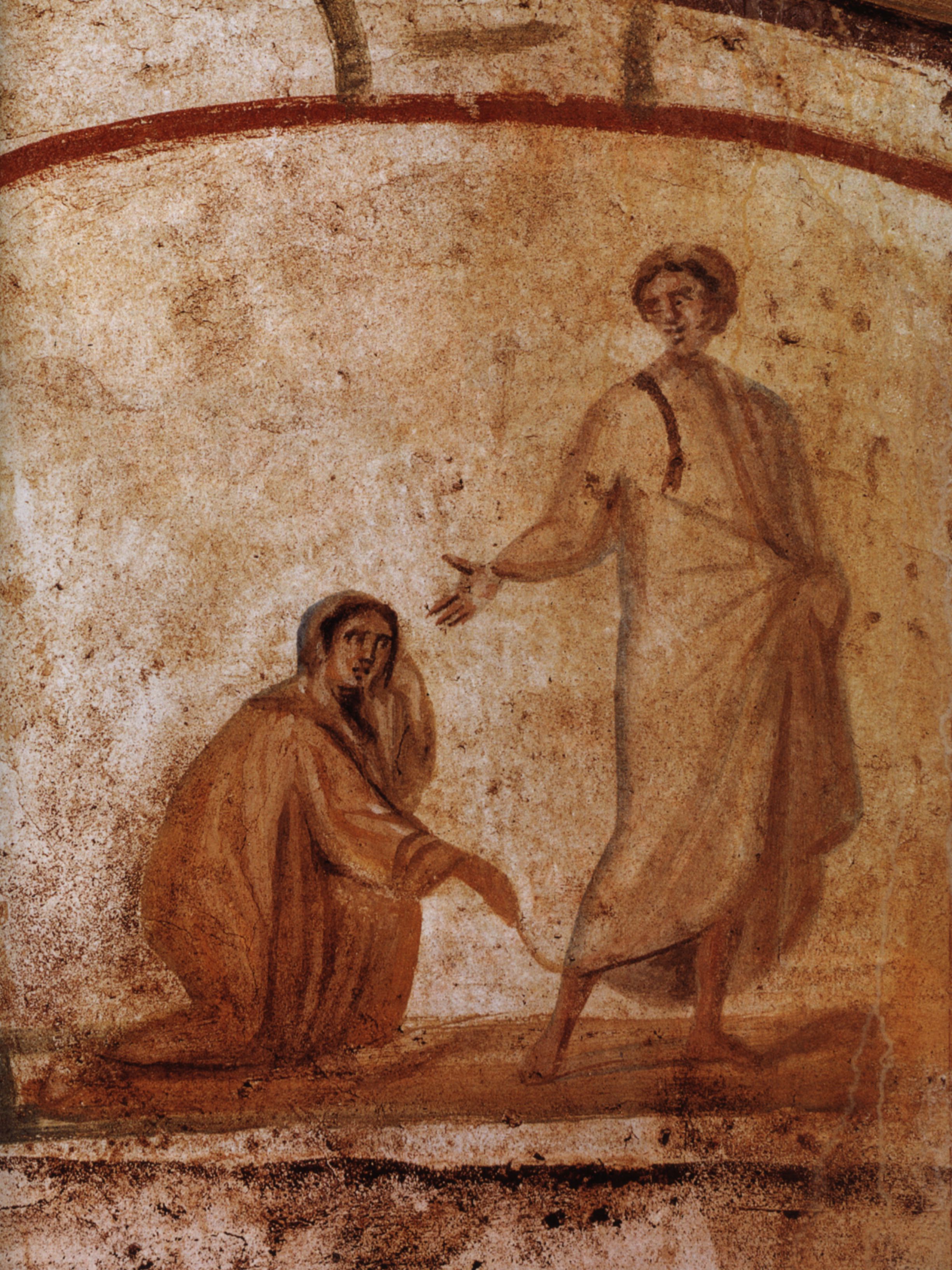 Mark 5:25-34 | Leviticus 15:19-30
Mark 5:25-34 | Leviticus 15:19-30I am a walking danger,
infectiously unclean,
can't touch or be touched,
for what I touch
I infect
with uncleanness.
I haven't felt a man's embrace
or stepped inside the temple courts
or hugged a child,
held a friend's hand,
these twelve long years -
untouchable.
I've gone to doctors
and spent all I had
till I'd spent myself dry -
to no avail.
Now here I am, bleeding,
worse than before.
Must I always be
untouchable?
I've heard of you from far away,
they say you heal, set captives free.
Can I believe that what they say
is meant for me?
But I'm unclean,
too unclean for the temple -
I must be too unclean for you.
But in my heart I know it's true
that you, Lord, are my only hope -
and this I know:
you'll heal me.
One touch,
one forbidden touch,
and you
will make me clean.
Jesus.
Can I dare?
I reach out my hand
and
touch
you.
___________________________________________________
[January 2012]
Read Leviticus 15:19-30 to see what rules there were concerning menstruation and unusual discharges like in the case of this lady.
It's quite complicated actually. Just try imagining it: every time you have a period, you can't touch anything or sit anywhere or anything! (On the other hand, it could give you a week off school... ^^) It might seem really strict, but in some ways it makes sense. As one of my Judaism handbooks says, it could give women a "time off" from their husbands. And keeping track of bodily fluids and things could keep diseases in check in earlier times when such things were more dangerous.
But such laws could also become very oppressive, especially for this woman who couldn't freely touch people and things without having to watch out, who couldn't even worship God in the temple.
When I first read about those laws concerning menstruation, I noticed that this woman did something really really crazy and risky when she touched Jesus' robe. Because actually, if I understand it correctly, a person touching her would become unclean. But the wonderful thing that happened instead is: Jesus made her clean.
We don't need to be afraid of our problems "damaging" Jesus or bothering Him too much or putting Him off. We don't need to be afraid! Because He can take all those things away. There's no problem too deep to share with Jesus, and no sin too dirty for Him to forgive. Unbelievable but true.
Picture from the Roman Catacombs.
15 January 2016
The Tenth Plague: Empathy
Exodus 12:29-32 | Wisdom 11:2-16
Do to others as you would have them do to you. (Luke 6:31)
Only now I understand you,
only now I feel your pain.
Only now do I feel sorry -
do you feel sorry for me?
It's something else when it happens to others,
to the outsiders, foreigners, the ones we don't like.
I could close my eyes, ignore it,
or pretend it was all right -
I did not know what it was like,
I did not care to ask.
But now I feel the pain you felt,
now I lose what you have lost,
now He has taken what we took from you,
and made me see what we did to you.
I did not care to ask,
I did not know what it was like.
Perhaps,
had I stopped to imagine
myself in your place,
my son in your son's place,
perhaps then
I would not have let them do to you
what I didn't want done to myself,
would not have made you lose your sons,
for I can't bear losing mine.
Only now I understand you,
only now I feel your pain.
Only now do I feel sorry -
do you feel sorry for me?
__________________________________________________
[10. January 2016]
This is about / written from the p.o.v. of the mothers of the first-born who died during the tenth plague in Egypt. I decided to write about them after seeing the picture (above) by Charles Sprague Pearce - I must admit I had never considered their point of view before!
I hope this is understood correctly... in no way do I want to say the Egyptian mothers "deserved" what happened to them. Instead I see it as them having to learn empathy the hard way. Reading Wisdom 11 I found interesting that the Israelites had to learn empathy in the desert when they were thirsty (v. 8). And the sentence "one is punished by the very things by which one sins." (v. 16) The Egyptians actually got away considerably better during the tenth plague, I realised, than the Israelites who lost all their sons (except those like Moses who were hidden or saved) during the pharaoh's decree. The tenth plague was not simply a blow from above - it was the Egyptians being made to experience exactly that which they had done to the Israelites before.
So I wrote this considering how a bereft Egyptian mother might look differently at the Israelite mothers who had lost their children under the decree. I doubt that these Egyptian mothers really played a major part in killing Israelite children - but even if one does not play an active role, one plays a passive one (as happened a lot during the Holocaust): not standing up, not protesting, not defending those who are being abused by the system. Often we only realise what is going on and how wrong it is, and that we should be doing something, once we are ourselves affected.
Maybe we need to ask ourselves (before it's too late) who are those suffering today who need our voice. Before, like the Egyptian mothers, we have to be taught empathy the hard way...
Picture by Charles Sprague Pearce.
Subscribe to:
Posts (Atom)
_(5982160160).jpg/1024px-The_snakes_of_Australia_(Plate_X)_(5982160160).jpg)
